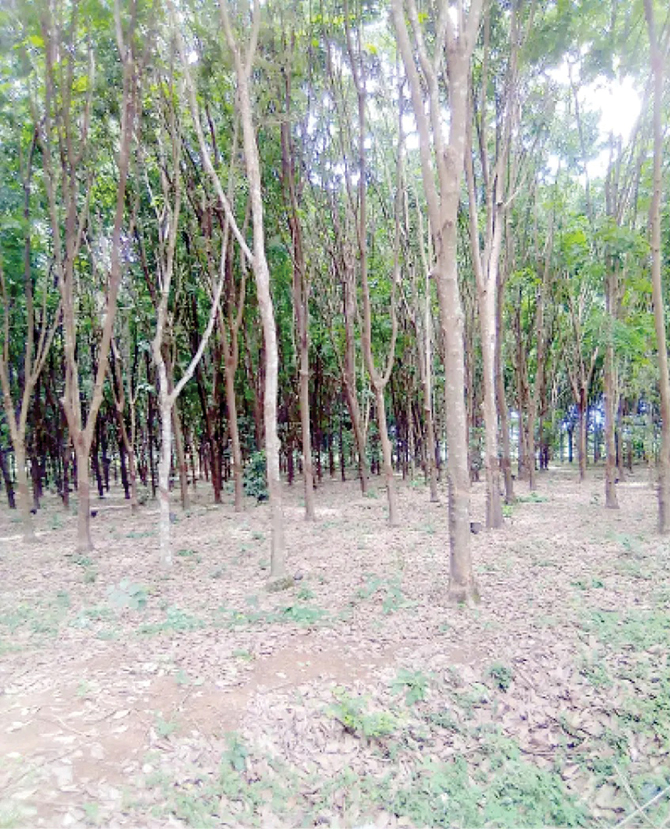Why more farmers are going into rubber production
The attractive outlook of natural rubber business in the international markets is making big time farmers to beam with smiles. As a result, the number of people going into rubber production, especially in Cross River State, has increased. There are signs that local farmers are expanding their estates, while new comers are also cultivating new […]

A rubber plantation in Odukpani Local Government Area
The attractive outlook of natural rubber business in the international markets is making big time farmers to beam with smiles. As a result, the number of people going into rubber production, especially in Cross River State, has increased.
There are signs that local farmers are expanding their estates, while new comers are also cultivating new plantations.
In an interview with Daily Trust on Sunday, the chairman of the Cross River State chapter of the National Association of Rubber Producers, Processors and Marketers of Nigeria (NARPPMAN), The Rev Inameti Umoh, said the price of processed natural rubber had jumped from N400,000 per metric tonne to an all- time-high of N900,000 to N1million.
“The price of rubber has soared in the international market in the last two years. A finished product, not rubber lump, is now sold from N800,000, N900,000 to N1m per metric tonne.
- Inside Kano’s lucrative ostrich farm, where chick costs N250,000
- 10th House: Opposition scrambles for minority leadership positions
“Many rubber farmers are now smiling to the bank as against what obtained previously when farmers laboured so hard, yet were selling as low as N400,000 or less, which was not even enough to defray labour, land cost and other factors.
“This outlook is now very good for investors and banks to have renewed interest in the subsector and come in to help us,” Umoh said.
He said it was the local subsistence farmers that ought to benefit better because they were supposed to be involved in major production but not because they had little or no access to credit facilities.
“Despite the bright outlook for rubber in the international market, banks or lending houses are still not too eager to do business with us due to the long gestational period of rubber, which takes about seven years to mature. This means that we are still struggling. We need the government to change its attitude toward us.
“In some eastern countries, government directly guarantees credits to rubber farmers, but not in Nigeria. This is impacting against rubber development,” he added.
In a recent meeting with members of the NARPPMAN in Calabar, the national president, Prince Peter Igbinosun, said there had been an upsurge in the demand for natural rubber in the international market.
As a result, he said the price of rubber had shot up, putting more money in the hands of farmers.
“Those that are actually reaping from the new outlook are big time rubber farmers who have vast plantations. This is why we need state and federal governments to support our members to expand their plantations by having access to low interest credit facilities.
“This will help our members to regenerate their aging plantations by planting new nurseries so that after a seven-year gestation period, creditors and farmers will begin to reap,” he said.
